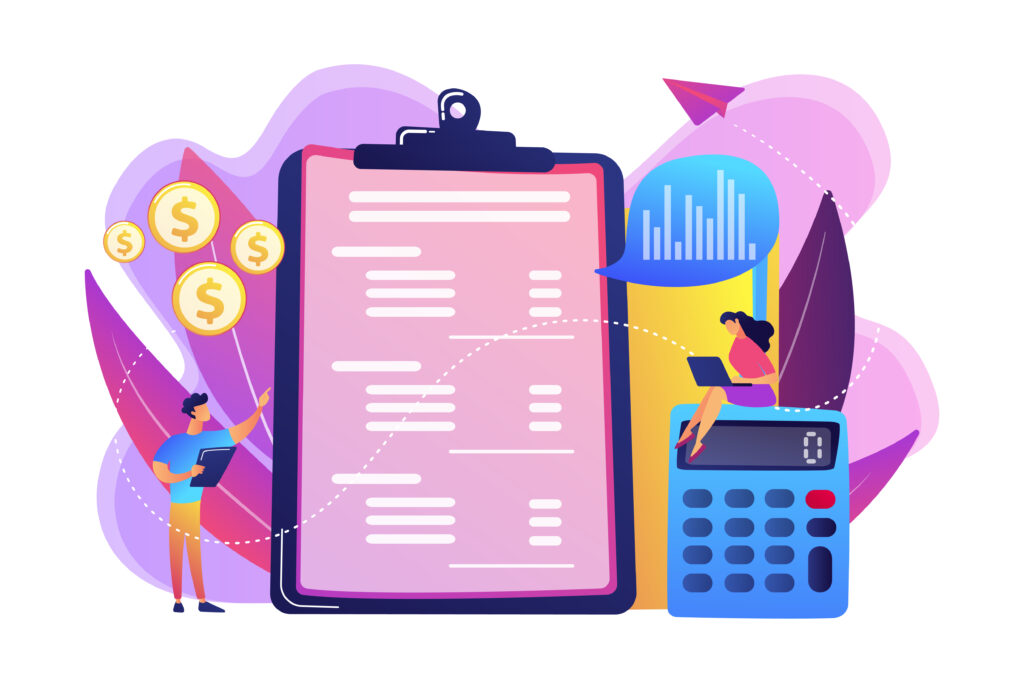Why Select a Mobile App Development Company?
It is important to learn how to select a mobile app development company. If you lack the confidence to create mobile apps on your own, hiring a mobile app development company is a sensible option. However, with countless companies available, the selection process can be daunting for anyone involved.

Choosing the right mobile app development company is a pivotal decision that can greatly influence your app’s success. Whether you’re developing a straightforward app or a complex solution that spans multiple platforms, it’s vital to find a dependable, experienced partner who aligns with your objectives. Here’s a comprehensive guide on how to select the ideal mobile app development company:
1. Define Your App Requirements
Before reaching out to any mobile app development company, it’s crucial to articulate your project needs and goals clearly.
- App Purpose: Identify the main functionality and the issue your app intends to address. Is it an e-commerce platform, a social networking site, or an enterprise tool.
- Target Audience: Determine who will use your app. Understanding your audience’s demographics (age, interests, location) will help you choose a company that specializes in that area.
- Platform: Decide whether you need a native app (iOS, Android) or a cross-platform solution (using frameworks like React Native or Flutter).
- Budget and Timeline: Establish a realistic budget and timeline for your project. Clear financial and scheduling expectations will aid in finding an appropriate development partner.
By having a clear vision from the start, you can more effectively evaluate a company’s ability to deliver the necessary features within your constraints.
2. Evaluate the Company’s Experience and Portfolio

A company’s portfolio serves as a direct indicator of its expertise and experience.
- Relevant Projects: Ensure the company has experience in developing apps similar to what you require. For instance, if you are creating an e-commerce app, look for past projects in that domain.
- Cross-Platform Skills: If you need apps for both Android and iOS, confirm that the company has proficiency in both platforms or can create cross-platform applications using technologies like React Native or Flutter.
- Innovative Design: Review their portfolio for design quality and user experience (UI/UX). The apps should not only perform well but also appear professional and be easy to navigate.
- Download Live Apps: If possible, download apps they have developed from app stores to assess their quality in practical use.
By following these steps, you can make an informed choice when selecting a mobile app development company that aligns with your project’s needs.
3. Review Client Feedback and Testimonials
To assess a company’s performance and reputation, it’s important to look for feedback from previous clients.
- Online Reviews: Websites like Clutch, GoodFirms, and Upwork feature verified reviews from clients about app development companies. These insights can shed light on the company’s project management skills, communication effectiveness, and overall work quality.
- Case Studies and Testimonials: Many companies showcase case studies or testimonials on their websites. Pay attention to the types of projects highlighted and whether the testimonials mention long-term collaborations, as this often indicates client satisfaction.
- Direct Referrals: If possible, contact the company’s former clients directly. Inquire about their experiences with the team, adherence to project timelines, and any challenges they encountered.
4. Evaluate Technical Expertise and Development Skills

Ensure that the development team possesses the technical skills necessary to bring your app to life.
- Technology Stack: Familiarize yourself with the technologies the company specializes in. For native app development, they should be proficient in Swift (for iOS) and Kotlin/Java (for Android). For cross-platform applications, check their experience with frameworks like React Native, Flutter, or Xamarin.
- Backend Development: Mobile applications typically require a strong backend to manage data, user authentication, and transaction processing. Confirm that the company has experience with backend technologies such as Node.js, Ruby on Rails, Django, or Firebase.
- UI/UX Design Capabilities: A successful mobile app requires an intuitive design. Assess whether the company has a dedicated design team that stays updated with the latest trends in mobile app UI/UX design or if they outsource this aspect.
- Security Practices: Verify that the company adheres to best practices for app security, especially if your app will handle sensitive information (e.g., personal data or payments). Inquire about their experience with encryption methods, secure data storage solutions, and compliance with regulations like GDPR (for European users) or HIPAA (for healthcare apps).
5. Examine the Development Process
Understanding the development methodology and processes of a company is crucial for aligning expectations.
- Development Methodology: Check if the company employs agile methodologies (like Scrum or Kanban), which are prevalent in app development. Agile enables iterative progress, allowing for regular updates and the opportunity to provide feedback throughout the development cycle.
- Project Management Tools: Inquire about the tools they utilize for project management and communication. Tools such as Jira, Trello, Slack, or Asana can enhance collaboration and transparency.
- Milestones and Reporting: Confirm that the company adheres to a structured process with established milestones and regular reporting. This ensures you remain informed about the app’s progress and can
contribute input at key stages. - Testing and Quality Assurance: Ask about their testing procedures. A reputable company should implement thorough testing, including functional, usability, performance, and security testing before launching the app.
6. Assess Communication and Collaboration

Effective communication is vital for a successful partnership in app development.
- Clear Communication Channels: Ensure there are established lines of communication between you and the development team. This could involve email, regular video calls, or project management platforms. Maintaining constant contact helps keep the project on track.
- Time Zone and Language Considerations: Be mindful of any time zone differences between you and the development team. Some companies may offer 24/7 availability, but it’s essential to confirm that they are responsive during your working hours. Additionally, assess their language skills to prevent misunderstandings.
- Cultural Fit: Sometimes, interpersonal skills and team dynamics are as important as technical abilities. Ensure that the company shares your values regarding project timelines, work ethics, and collaboration practices.
7. Consider Post-Development Support and Maintenance
Once your app is launched, it will need ongoing maintenance and updates.
- Support Packages: Inquire if the company provides support and maintenance packages after the launch. Mobile applications require updates to address bugs, enhance performance, and adapt to changes in operating systems (such as updates for iOS or Android).
- Long-term Relationship: Opt for a company that seeks a long-term partnership. App development extends beyond the initial launch; regular updates, bug fixes, and feature enhancements will be necessary, so it’s crucial to have a developer committed to supporting you over time.
8. Compare Pricing and Contracts

While cost is an important consideration, avoid making your decision based solely on the lowest bid.
- Cost Transparency: Understand the pricing structure clearly. Some companies may charge hourly rates, while others might offer fixed project costs. Be aware of potential cost overruns, especially if the project scope evolves during development.
- Hidden Costs: Ensure there are no hidden fees involved. Discuss any additional expenses such as server hosting, app store fees, or third-party integrations that could impact your final budget.
- Payment Terms: Clarify the payment terms, including when milestone payments are due, whether an upfront payment is required, and when the final balance must be paid.
- Contract Terms: Carefully review the contract to ensure it includes details about intellectual property ownership, confidentiality agreements, and the responsibilities of both parties. Make sure you retain full ownership of the app’s code and design.
9. Consider Their Industry Specialization

Some app development companies focus on specific industries, such as healthcare, fintech, retail, or education.
- Domain Expertise: If your app pertains to a specialized sector, selecting a company with relevant domain expertise can be beneficial. They will be familiar with the unique challenges, regulatory requirements, and user expectations specific to your industry.
- Niche Solutions: For instance, in the healthcare field, compliance with HIPAA is essential for apps that manage patient data. Similarly, fintech applications must implement stringent security measures for financial transactions. A company experienced in your industry will be better positioned to address these specialized needs effectively.
[Want to learn more on How to Select a Mobile App Development Company? Click here to reach us.]
Conclusion
Choosing the right mobile app development company is crucial for your app’s success. By evaluating factors like experience, technical expertise, client reviews, and post-launch support, you can find a partner that aligns with your goals. Bobcares is an excellent choice, offering comprehensive mobile app development services, including design, testing, and ongoing maintenance. Their commitment to long-term partnerships and 24/7 support ensures your app remains functional and up-to-date. Investing time in selecting the right company will help ensure your app is high-quality and competitive.







0 Comments